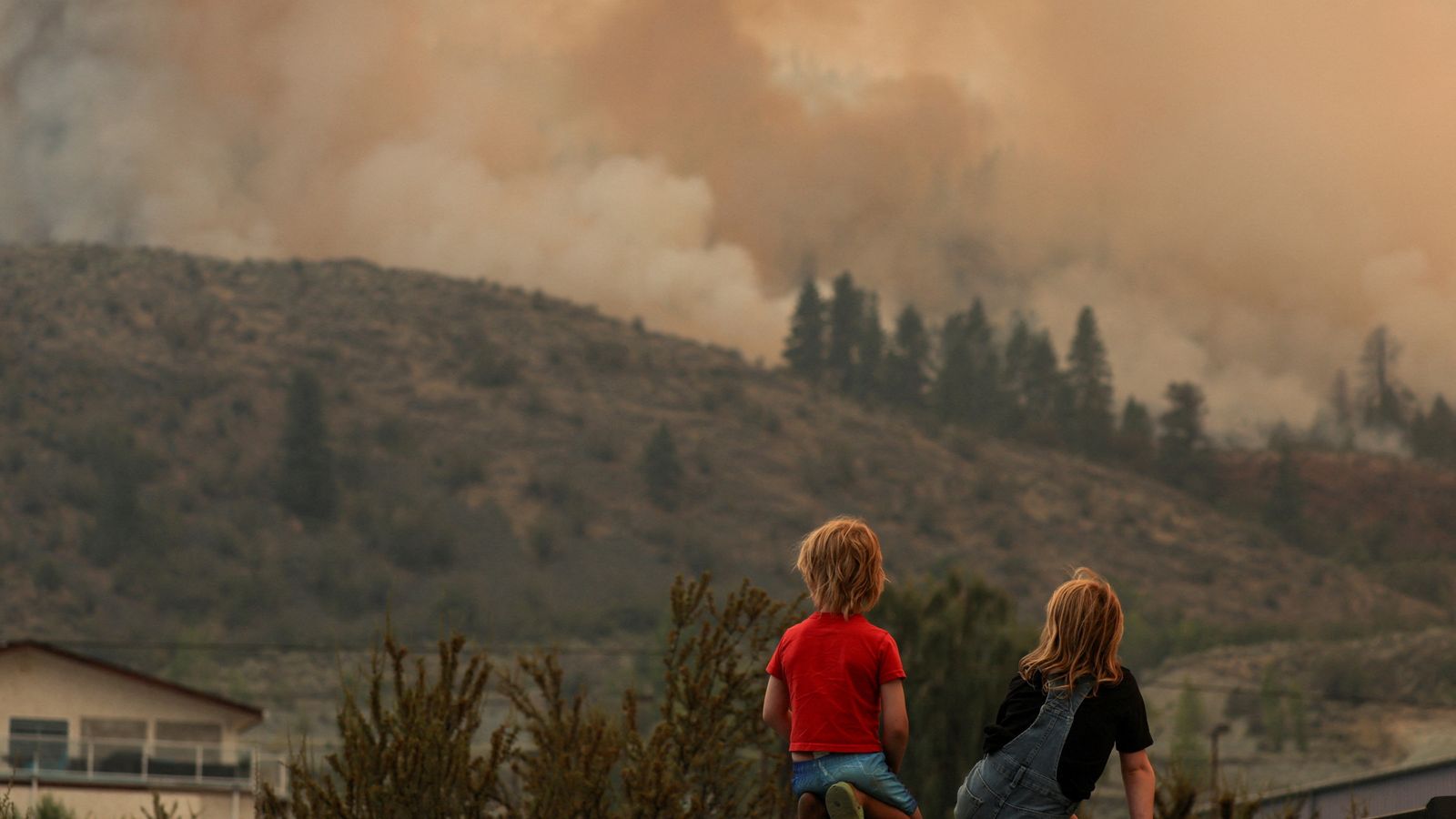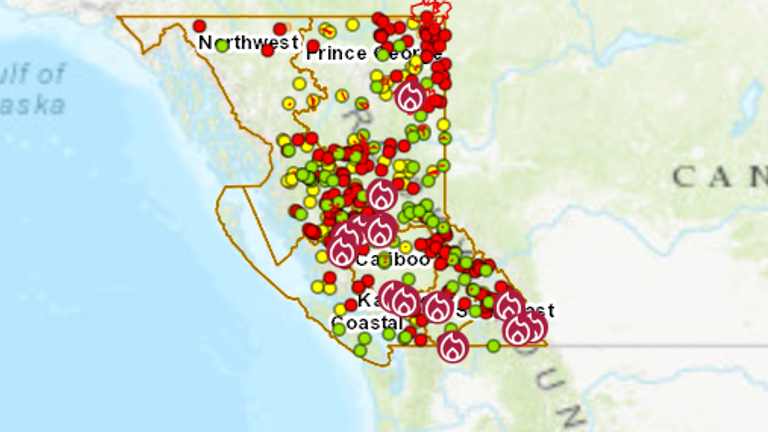Canada wildfires: Border town evacuated as blazes cross into US


Thousands of people have been ordered to leave a Canadian border town due to an “out-of-control” wildfire.
The fire, known as Eagle Bluff, has triggered evacuation orders in Osoyoos, British Colombia, with officials estimating it is around 2,200 acres (3.44 square miles) in size on the Canadian side of the border.
It is believed to be around 2,000 acres (3.13 square miles) big on the US side of the border in Washington state.
“There are Initial Attack crew personnel, several single resources, two helicopters, structure protection personnel and
heavy equipment responding to the incident” in Osoyoos, the British Colombia Wildfire Service said.
“A total of 732 properties have been under evacuation order and 2,094 are under evacuation alerts. 132 people have sought emergency support,” regional district information officer Erick Thompson told a news briefing.
Around 6,700 people live in the evacuated town.
Temperatures in the town are expected to hit 33C (91F), with the average high for July around 30C (86F).
It comes after The Royal Canadian Mounted Police (RCMP) announced a 25-year-old firefighter died battling the fires in the north-east of British Colombia.
The RCMP said he was working in a remote area when his quad bike rolled over a steep drop on a gravel road on Friday.
Advertisement
Eagle Bluff is the latest wildfire in the region, with officials saying more than 1,500 blazes have scorched British Colombia so far in 2023 – with more than 360 over the weekend alone, and 191 classed as “out-of-control”.
Read more:
Analysis: Canada set for worst year on record for its out-of-control wildfires
Satellite images show smoke from Canada wildfires across Britain – as fresh alerts issued in US
Pictures show the terror of wildfires in Greece, Rhodes and Corfu: ‘The sky turned dark’
There is a smattering of “out-of-control” fires across British Colombia, which are characterised as “a wildfire that is continuing to spread and is not responding to suppression efforts.”
Earlier in the year, smoke from other wildfires across Canada blew across New York, shrouding the city and causing breathing problems.
In Europe, fires last week burned across Greek islands and northern Africa, forcing dramatic evacuations from holiday resorts.
Rhodes bore the brunt of the flames, with many towns on the south of the island remaining damaged or inaccessible.
Experts say the increasing number of wildfires across the world are a direct result of climate change.